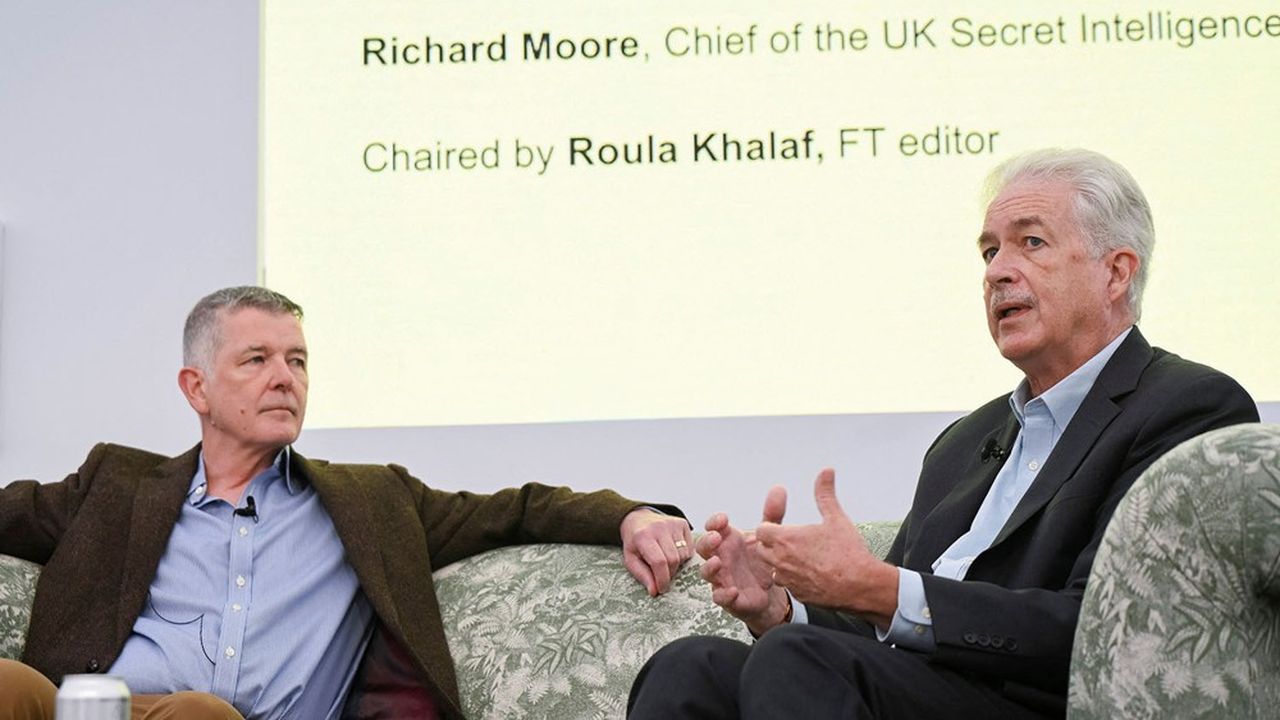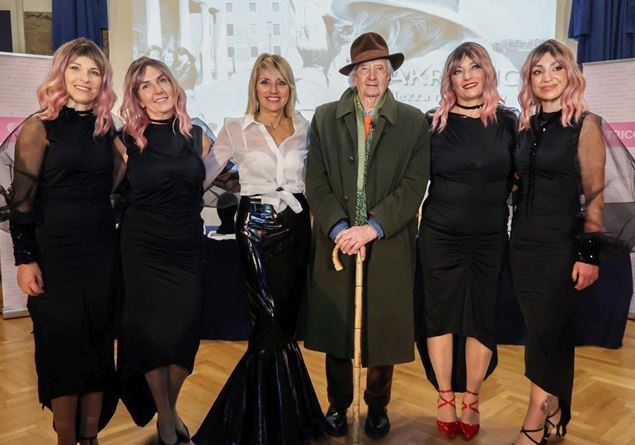
The names of the speakers for this round table had been kept secret until the last moment, but Roula Khalaf, editor-in-chief of the Financial Times, had urged the audience to keep their seats at the end of the previous discussion, a quarter of an hour earlier.
It was therefore with some astonishment that the audience at the FTWeek-End Festival this Saturday in London saw the head of MI6, Richard Moore, and that of the CIA, William J. Burns, sit on a large pale green sofa. It is the first time in the history of these two foreign intelligence agencies that their respective heads have appeared in public together. Until a few decades ago, the identity of the head of MI6 was kept secret. The existence of MI6, the Secret Intelligence Service, was not even acknowledged by the government until 1986.
“Why are you doing this?”
“I know you have a ‘special relationship’ but why are you doing this?” was Roula Khalaf’s first question. And the two leaders, who are among the handful of people best informed in the world about the geopolitical risks of the planet, explained that appearing in public legitimized their organizations and could incidentally help their recruitment efforts…
In the bucolic setting of Hampstead Park, and while discussions were taking place under the marquees of this Festival on serious subjects but also on light themes as varied as the “Cult of the Dry Martini” (very James Bond-esque, by the way), “Revealing the secrets of Paris”, “How to have a radiant garden”…, the two leaders reviewed the state of the world, from China to Ukraine, via Iran and the conflict between Israel and Hamas.
Strong sentences
No scoop, of course, in essence – Richard Moore and “Bill” Burns have often explained that they could not answer this or that question – but strong sentences on the position of their country and for the audience the strangeness of seeing two negotiators interact live on the front line on the most burning and heartbreaking subjects of the news with gravity, great mutual respect, it seems, but also sometimes humor (“The problem is that MI6 has already taken the best letters (as code names), they have C, Q, M”, Bill Burns joked). The video is available on Youtube.
On the Ukrainian offensive in Russia’s Kursk region, Richard Moore called it a “typically courageous and bold Ukrainian action.” “I think it changed the narrative to some extent” about the war, he added. He said that Vladimir Putin’s “tight control” of the Russian state should not be confused with “stable control,” especially since the Kursk incursion had “exported the war to the Russian population.”
20% of CIA budget on China
The issue of the many Russian agents who can no longer operate in Europe and have moved to Mexico to carry out destabilization operations on the border with the United States was also raised. “This is something we are monitoring very closely,” said the CIA chief.
On the Gaza conflict, Bill Burns, who is heavily involved in the hostage negotiations, said the United States would make a new proposal for a deal in the coming days. He made no promises, however. A deal between Israel and Hamas “is 90 percent there,” but the “last 10 percent is always the hardest.” On the creation of two states for a lasting peace, he said, “it’s a very elusive goal, but the only thing I would say is, show me a better solution.”
The CIA chief finally explained that the resources devoted to China by the agency had tripled in three years and represented 20% of the total, with both men acknowledging that China was the most important challenge facing the West.
The next session of the festival was an interview with the actor John Lithgow (“The World According to Garp,” “Dexter,” “The Crown”…). Despite his Hollywood fame, the room was more sparse, although he won over his audience by reciting his satirical poems about Donald Trump. The tenuous connection with the previous session was perhaps that he had played Roger Ailes, the founder of Fox News with enormous influence over American politics, in “Scandal.”




